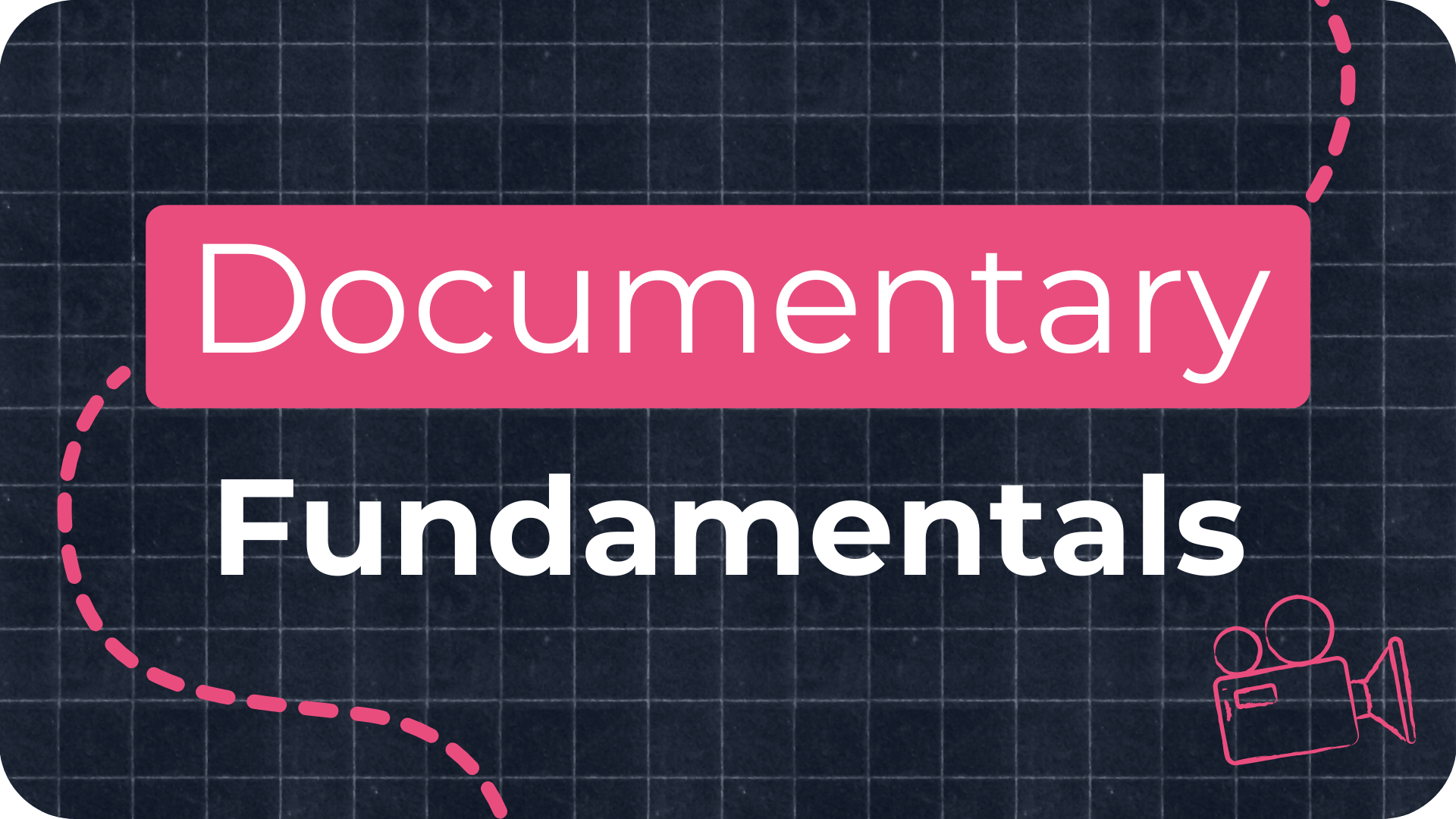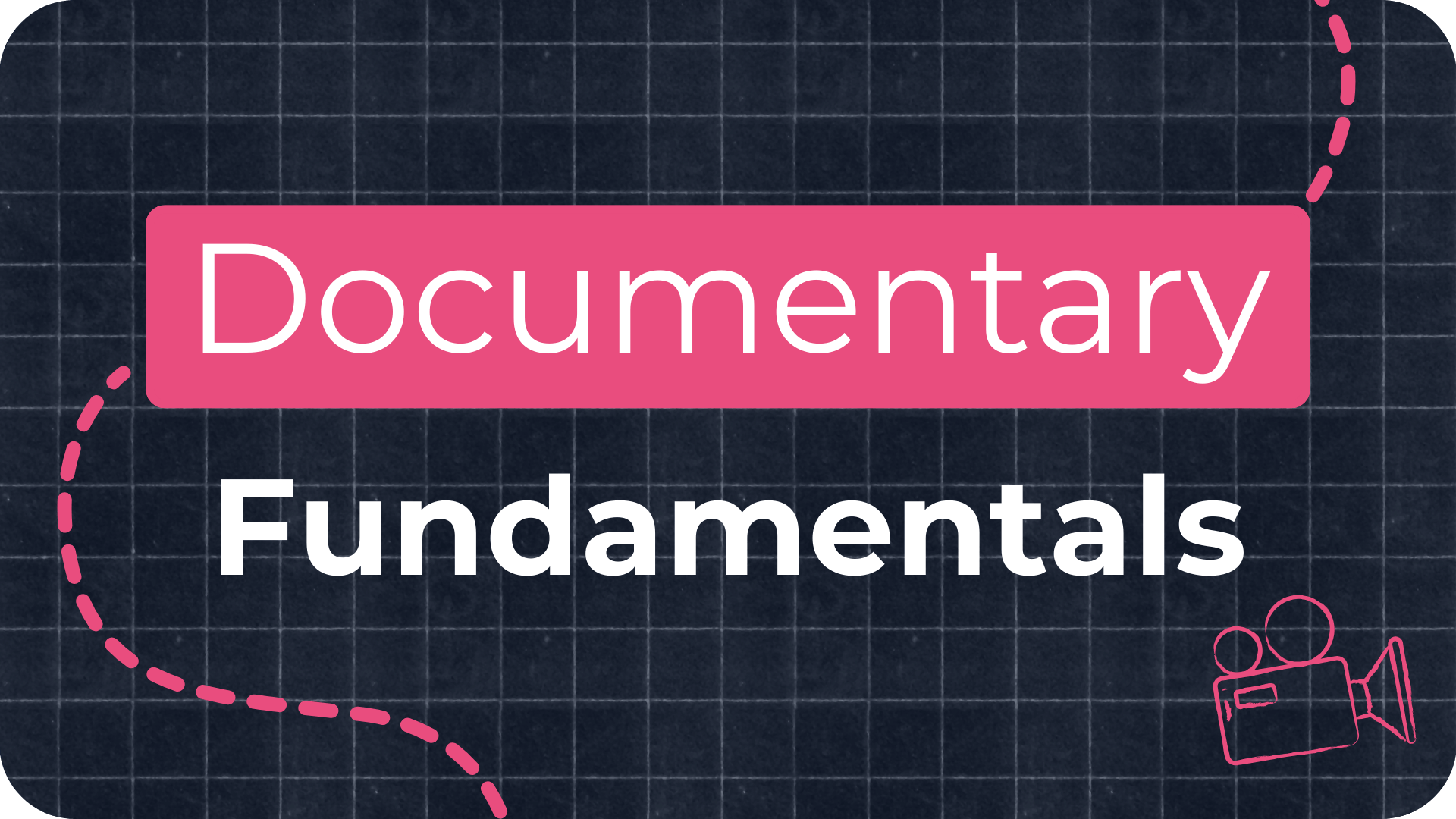Best Documentary Cameras: A Filmmaker's Guide

Embarking on making a documentary is an exciting and rewarding journey. Whether you're telling the untold stories of hidden communities or documenting the beauty of nature, while filming, the camera you choose will be your closest companion. But with countless options available, selecting the best documentary camera can feel overwhelming and stressful. But don’t worry—I'm here to help simplify the process.
We'll dive deep into the essential factors that will influence your choice, explore various camera types (with our camera guide, which you can download here), and provide practical tips to help you find the perfect tool to bring your story to life.
Key Considerations for Documentary Cameras
When selecting a camera for your documentary, you’re choosing more than just a piece of equipment. You’re selecting a storytelling tool that will shape how your audience experiences your narrative. Here are the critical factors to keep in mind:
1. Documentary Camera Image Quality: Painting with Light
- Resolution: Opt for a camera that supports at least Full HD (1080p) resolution. If you aim for cinema-grade quality, consider 4K or higher, which offers more flexibility in post-production.
- Dynamic Range: This measures the camera's ability to capture details in both the brightest highlights and the darkest shadows. A high dynamic range is crucial for documentaries that involve unpredictable lighting conditions.
- Low-Light Performance: Documentaries often take you to places where lighting is out of your control. Cameras with excellent low-light performance ensure your footage remains crisp and detailed, even in dim environments.
2. Documentary Camera Audio Quality: The Voice of Your Story
- Built-in Microphones: While most cameras come with built-in mics, they may not always deliver professional-grade sound. Ensure your camera can capture clear dialogue, but always be ready to use external microphones.
- External Microphone Inputs: Look for cameras that support external microphones. Clean, high-quality audio can make or break an interview or crucial ambient sound.
3. Documentary Camera Form Factor: Comfort Meets Convenience
- Size and Weight: Filmmaking can be physically demanding. Choose a camera that balances portability with functionality. Smaller, lighter cameras are easier to handle, especially for extended shoots or when traveling to remote locations.
- Ergonomics: A camera with intuitive controls and a comfortable grip will minimize fatigue and allow you to focus on capturing the moment.
4. Essential Documentary Camera Features: Unlocking Creative Potential
- Stabilization: Handheld shots are common in documentaries, so a camera with built-in stabilization will keep your footage smooth and professional-looking.
- Battery Life: Long shoots require long battery life. Look for cameras with robust batteries, or ensure you have spare batteries on hand.
- Touchscreen Interface: A responsive touchscreen can speed up your workflow, allowing you to change settings quickly and review footage on the go.
- Additional Capabilities: Features like slow motion, time-lapse, and HDR recording can add creative flair to your documentary.
5. Documentary Camera Budget: Balancing Cost with Quality
- Initial Investment vs. Long-Term Value: Consider your budget carefully. While high-end cameras offer top-tier features, many mid-range models deliver exceptional performance at a fraction of the cost. Remember to factor in the cost of lenses, microphones, and other accessories.
- Future-Proofing: Choose a camera that meets your current needs but also allows for growth as your skills and projects evolve.
Exploring Different Types of Documentary Cameras
The right camera type depends on your documentary's needs, your experience, and your budget. Here’s a breakdown of the options available:
1. Mobile Phones: Filmmaking in Your Pocket
While mobile phones may not be the first choice for professional documentaries, their convenience and accessibility make them a viable option, especially for guerrilla-style filmmaking. Some recent smartphones offer impressive image quality and built-in stabilization, making them a surprisingly effective tool for certain projects. However, be mindful of their limitations in audio quality and low-light performance.
2. Mirrorless Cameras: Versatility and Innovation
Mirrorless cameras are a popular choice for documentary filmmakers due to their lightweight design and excellent image quality. They strike a perfect balance between portability and performance, offering features like interchangeable lenses, high resolution, and superior low-light capabilities. Many mirrorless models also provide excellent autofocus and in-body stabilization, making them ideal for run-and-gun shooting.
3. Cinema Cameras: The Pinnacle of Filmmaking
If you're striving for top-tier production quality, cinema cameras are your best choice. These professional-grade cameras deliver unparalleled image quality, offering advanced features like 10-bit (or higher) recording. The higher the bit depth, the more color information is captured, resulting in richer and more detailed images and videos. High-end cinema cameras also support RAW format and boast expansive dynamic range, both of which contribute significantly to a superior visual experience. However, these advanced capabilities come with higher costs and a steeper learning curve. Cinema cameras are ideally suited for filmmakers with strong technical expertise and a clear need for high-end production value.

Choosing the Right Camera for Your Documentary
The ideal camera for your documentary will depend on the unique demands of your project. Here’s how to narrow down your options:
1. Align with Your Story
Your narrative should guide your camera choice. For example, if your documentary involves filming in tight and dark spaces, like a cave, a small camera with excellent low-light capabilities is crucial. On the other hand, if your film is more stationary and set in a house with large windows, where you need to balance the lighting both indoors and outdoors, a camera with a high dynamic range would be ideal. This type of camera allows you to capture the full spectrum of light and shadow, ensuring that both interior and exterior scenes are evenly lit and visually cohesive.
2. Assess Your Expertise
If you're new to filmmaking, opt for a camera with a user-friendly interface and automatic settings that allow you to focus on storytelling rather than technical details. As your skills grow, you can move to using manual settings which will give you more creative control.

3. Test Before You Commit
Whenever possible, try before you buy. Renting or borrowing lets you see how it works in real-life situations and helps you make sure it’s the right fit for you.

Your Story, Your Documentary Camera
Choosing the best documentary camera is a deeply personal decision. It’s not just about finding the highest specs—it's about finding a tool that resonates with your creative vision and style. Whether it's a phone camera or a cinema camera, it should empower you to tell your story authentically. Remember, the camera is just a tool; the real magic comes from the way you tell you story.
No matter which camera you choose, the key is to experiment, learn, and let your passion drive you.

























